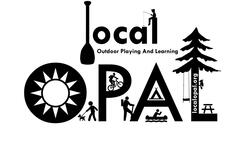Why Outdoor
Playing And Learning?
The average American child spends less time outdoors (about 4 to 7 minutes a day) than the 2 hours per day guaranteed to inmates in maximum security prisons.
Read more here, here, here or watch this illustrated here or here.
Read more here, here, here or watch this illustrated here or here.
Children are more enthusiastic about learning and have improved executive function when they have natural outdoor experiences. Watch and learn more about early childhood nature classrooms here.
Exercising outdoors can improve the benefits of a workout.
Read more here.
Read more here.
Researchers studying centenarians found that healthy older adults spending time outside, remain physically active and have stronger social connections. Just walking outside makes an enormous difference.
Read more here.
Read more here.
Spending time near water is great for reducing anxiety and stress. (That includes our beloved Illinois River and all our wetlands!)
Read more here or here or here or here.
Read more here or here or here or here.
Extensive scientific evidence showing how beneficial outdoor time can be has lead some physicians to use nature prescriptions as an innovative tool for improving patient health and well-being.
Read more here.
Read more here.
The substantial benefits of being outdoors have many physicians, particularly pediatricians, writing out park or nature prescriptions. Read more here.
A walk amongst trees can improve mental and physical health. Listen or read more here.
There are hundreds of scientific studies demonstrating the mental and physical health benefits of spending more time in nature for people of all ages. Read more here.
An outdoor walk can improve both physical and mental health. Read more here.
Family well-being can be created and enhanced by shared outdoor adventures. Read more here.
Being outdoors improves the quality of communication between parents and children. Read more here.
Time outdoors - no matter where you live - can have a huge impact on your overall well-being. Read more here.
"Spending time in the woods is strongly linked to lower blood pressure, heart rate and stress hormones and decreased anxiety, depression and fatigue. Scientists have repeatedly found that human anticancer natural killer cells significantly increase after walks in a forest." Read more here.
Nature can be a wonderful medicine against uncertainty, anxiety and fear. Read more here.
Spending at least 2 hours a week in nature is associated with good health and well-being. Read more here.
A recent university study concluded that "individuals who visit natural spaces weekly and feel psychologically connected to them report better physical and mental wellbeing". Read more here.
Outdoor time in early childhood years may support children’s development of attention skills and protect against inattention-hyperactivity symptoms and improve health and well-being. Read more here.
Access to natural environments can benefit children in various ways, including improvements in confidence, social interactions, cognitive development, academic achievement, and emotional well-being. Read more here.
Science-backed health benefits of being outside may include: improving short-term memory, destressing, reducing inflammation, reducing fatigue, fighting depression and anxiety, protecting vision, lowering blood pressure, improving ability to focus, performing creative tasks better, reducing cancer risk, boosting immune system and lowering overall risk of early death. Read more here.
Improve your family's chance of future health and success. Dr. Claire McCarthy of Harvard Health Publishing details six crucial ways playing outside helps children. Time outdoors can provide healthy sun exposure, encourage active play, improve executive function,
develop confidence, socialization skills and an appreciation of nature. Read more here.
develop confidence, socialization skills and an appreciation of nature. Read more here.
Interactions with nature can positively influence the mental health of children and teenagers. Read more here.
Youth report feelings of calm and peace when spending time outdoors. Read more here.
Harvard Medical School gives a prescription for better health ~ go outside. Read more here.
Psychologists believe that frequent nature outings with children and encouraging independent play and outdoor exploration can help
them mature into well-rounded adults. Read more here.
them mature into well-rounded adults. Read more here.
Research by Dr. Nancy Wells of Cornell University indicates time in a natural environment can reduce stress and bolster resilence against adversity. Read more here.
A 30-minute walk in nature can improve concentration. Read more here.
Nature exposure can improve social connections and prosocial behaviors. Read more here.
"Children are disappearing from the outdoors at a rate that would make them top of any conservationist’s list of endangered species if they were any other member of the animal kingdom." ~Tim Gill Read more here.
Healthcare providers understand how the environment can improve human health in general and children's health in particular.
Read more here.
Read more here.
Outdoor recreation is believed to benefit children's mental and social development. Read more here.
Nature play can encourage care for the Earth. Read more here.
Children who grow up feeling close to nature are happier. Read more here.
And so many more!


